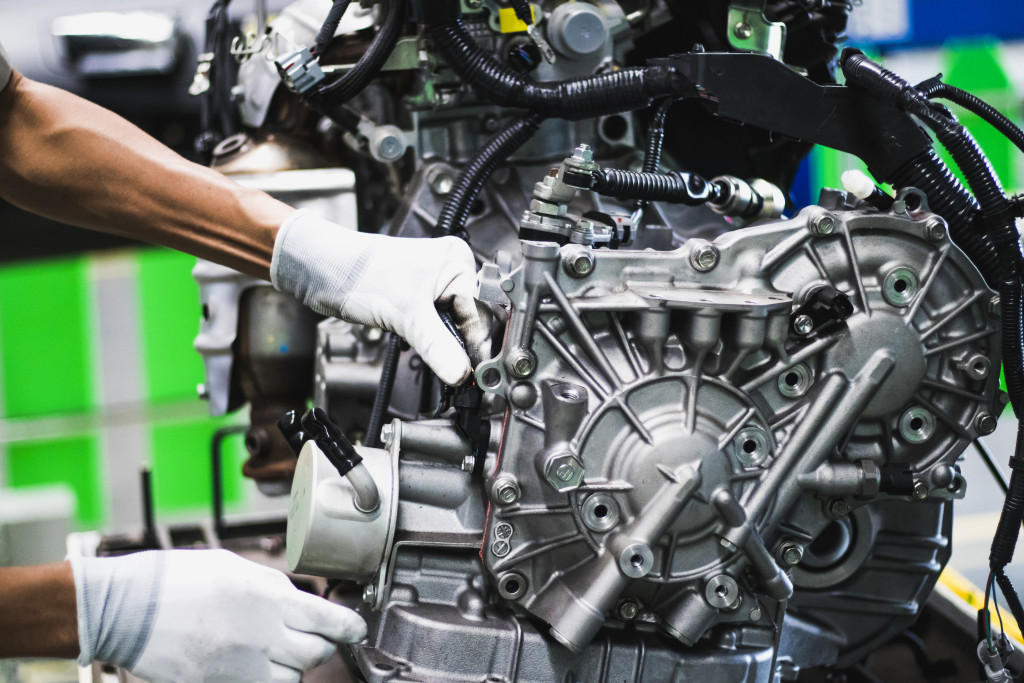The engine is the beating hard of any car. Without a properly functioning engine, it’s hard to think of a vehicle that can take the driver and its passengers to the right destination. Naturally, engines have always been built and designed around the idea that they can function for hours in harsh conditions. But just like other components of the car, the engine will also have its lifespan.
When we’re going on long rides and trips to other towns and cities, we usually do routine checks to ensure our engines are in good condition. This can come in oil changes and tune-ups and transmission services to mitigate the likelihood of mechanical failures. However, your driving style can affect the lifespan of your engine.
In general, an engine will have a lifespan will last around ten years. Various factors will come into play when it comes to lifespan, such as using the engine. When converting the average mileage of a standard engine, it can travel for around 200,000 miles in total. However, certain practices can drastically decrease your engine’s lifespan.
So what are some crucial ways of extending your engine’s lifespan? What can you do to ensure that your car is still performing well? Here’s what you need to know.
Invest in Newer Parts
One of the best ways of extending your engine’s lifespan is by getting new parts, especially if it’s already at the end of its lifespan. Having newer features can help “refresh” your engine’s lifespan, especially if you’re sure that the wear and tear have already affected your engine’s performance.
Investing in new parts has always been one of the best ways of extending your engine’s lifespan. However, you need first to check your engines and ensure that your components are still working. Replacing and investing in newer parts for your vehicle should be done when you’re already sure that there is permanent and long-term damage. Typically, trucks and logistical vehicles used by businesses are heavily used and will require companies to invest in newer parts to ensure that they all remain in good condition.
Fortunately, you won’t have to look far since some manufacturers and suppliers sell heavy-duty Cummins parts that can effectively extend the lifespan of engines and keep it in peak performance.

Shift Your Gears on Time
Another essential factor that can affect your engine’s lifespan is how often you shift your gears. This factor is vital among drivers that are using manual transmission cars. If you’re driving in a car with automatic transmission, shifting can generally take care of itself. Still, it’s essential to put your vehicle in the right gear, depending on the road’s inclination and how fast you’re driving.
These tips will usually apply to newer forms of transmission that will allow many drivers to select their gears electronically. In most cases, this is a dual-clutch transmission.
When you’re driving, you must be in the right gear. There will be certain gears that will correspond to the speed that you’re going. If you’re moving slower than usual and you’ve shifted to a higher gear, the car will run slower than usual. Although it might seem a bit trivial, lugging can cause unnecessary strain on your engines. Not only does this cause wear and tear, but this can damage the cylinder heads, which are one of the more expensive parts of the machine.
Another part of the engine to keep in mind that can affect its lifespan is engine braking. This happens when you’re driving on higher gear right before shifting to a lower one, then taking your foot off the pedal. This can usually cause the RPMs of your engine to increase and the car to slow down. This can cause excessive wear to your machine and problems in the long run.
Avoid Overspeeding Often
Another crucial way to effectively extend your engine’s lifespan is by avoiding speeding too much. Although machines are designed and built for the road and are especially durable against wear and tear, speeding can put a lot of pressure on your engine.
If you’re driving too fast, this can waste a lot of gasoline, can increase the rate of emissions, and can put you at the risk of getting a ticket from the authorities or getting involved in an accident. Instead of overspeeding, you can slow down in different areas.
Another reason you shouldn’t be spending too much is that it will result in your engine working harder as it pumps even more fuel to your pistons. If you’re at the highway, you should be within the ideal cruising speed. On average, the perfect cruising speed is around 50 to 55 miles in an hour. But if you increase your car’s speed to approximately 60 miles, this will use up 70% more power for the engines. As you can see, just a slight increase to your average cruising speed can have a significant impact on the amount of power that’s being consumed by your car.
Keeping your speed as low as possible (without being too slow) can help save money that would otherwise be spent on fuel. At the same time, this can prevent the acceleration of wear and tear on your engine.
You can use various ways to extend your engine’s lifespan. Although it might seem like your engine can take a beating, and you’re confident to take your car to long rides, be mindful that constant use can cause wear and tear. Whatever the situation might be, having your engine checked and tuned before long trips are ideal in keeping it in pristine condition. Remember: prevention is better than having to pay a hefty price for a damaged engine.





